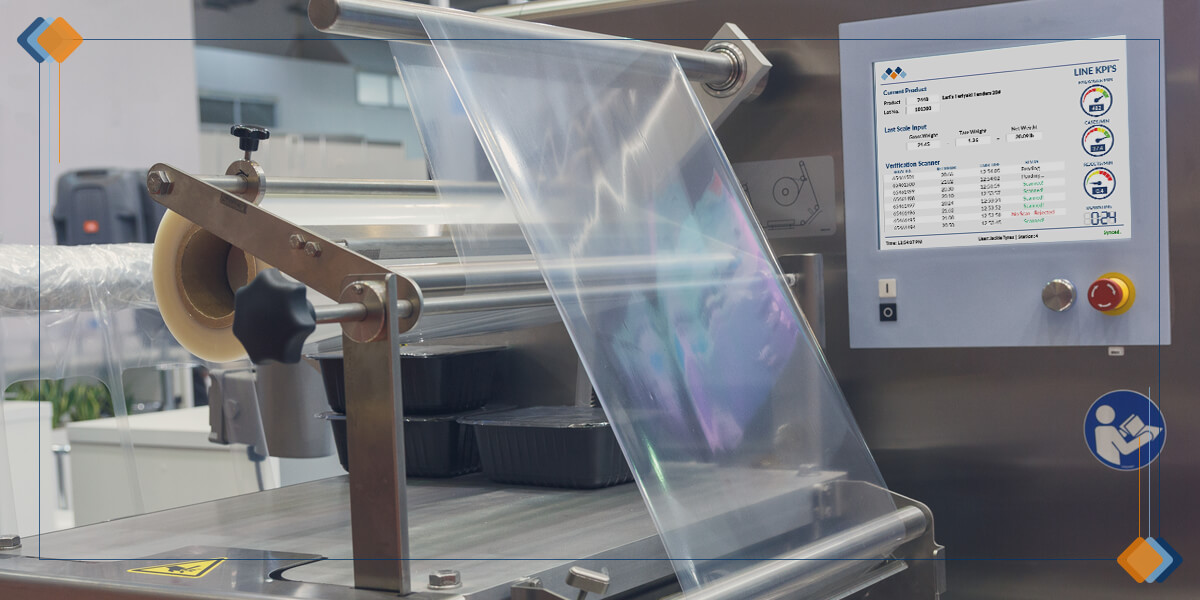
If you’re in the food manufacturing industry and have hit a certain size, you’ve likely invested in a corporate ERP system and might be thinking about implementing a food industry MES system. Your ERP might be an internally developed system if you have a sizeable IT infrastructure, or any number of third-party solutions like Microsoft Dynamics, SAP or Sage if you don’t. Many ERP packages offer plant floor modules, but while these might be effective in other sectors, the food manufacturing industry has very specific and unique needs. As such, a food industry manufacturing execution system (MES) provides the best option for a plant floor production management and data collection system. Here are five advantages that a food industry MES system has over an ERP alternative.
How a Food Industry MES System Is Different from an ERP Solution
Here are five things your food industry MES system should have that your ERP system probably doesn’t:
- User Friendly Operator Interfaces – The golden rule of developing software for the food processing industry plant floor is that must be easy to use. If it doesn’t have an easy-to-use operator interface, isn’t intuitive or isn’t easy to navigate, operators will find a reason not to use it. If the initial implementation stages of a plant floor system aren’t successful, it’s much more difficult to try to reimplement later. Since it’s inception more than 25 years ago, we’ve always developed Data Navigator with the plant floor user in mind. We’d proudly put it up against any plant floor ERP modules in terms of operator interface intuitiveness and ease of usability.
.

. - Integration to Production Equipment – Food manufacturing production equipment is filled with valuable data and can be used to streamline and optimize manufacturing processes. If effectively mined, production machine data can provide detailed insights into throughput performance and product quality. When data can be automatically captured from devices like dynamic scales, barcode scanners, vision cameras, temperature probes and x-ray machines, line speeds can be increased and data entry errors eliminated. Your MES system likely integrates to production equipment much more effectively than an ERP module does.
- Offline Operating Capability – When your production lines stop, you stop making money. In fact, downtime can carry significant costs in terms of extra wages, spoiled or downgraded product, and additional facility overhead. Network outages are a fact of life not in the food manufacturing industry but in any industry: network cabling can break, equipment can fail and servers can reboot. Office workers can take a break or work on something else if the network is temporarily unavailable, but if your manufacturing processes are network dependent then they will come to a screeching halt if the network fails. Your food industry specific MES should have offline operation capability, a feature that many ERP modules – and especially those connected to remote data sources – simply don’t have.
- Food Industry-Specific Functionality – The food manufacturing industry is unique from many others in terms of variable catch weight products instead of discrete piece counts, products with relatively short shelf lives, and inherently inconsistent raw materials. Other industries have the luxury of very consistent raw materials where a piece is a piece, and product orders are typically based on piece counts. ERP systems that don’t natively deal with the intricacies of the food manufacturing industry can lead to inventory valuation and reconciliation issues, difficulties with cost calculations, and production forecasting challenges. An MES system – and especially one developed specifically for the food manufacturing industry – will manage these and many more challenges, making them the ideal solution for your production management and data collection needs.
- Food Industry-Specific Modularity – In the same vein, a food industry MES system will likely feature software modules that align well with your production processes. A Receiving module will cater to the different needs of your raw materials, dry ingredients and packaging materials. A Recipe Management module will help manage mixing, blending and injection processes. An SPC module can help optimize your cook, chill and slicing processes. Labeling modules will take care of all your labeling needs from case-ready piece labeling to barcode case labeling to intelligent pallet labeling. An ERP system likely won’t have these types of modules, and if you try to shoehorn non-purpose-built modules into these parts of your production processes the outcome will likely be much less than desirable.
Driving Bottom Line Results
If you’re heavily invested in an in-house or third-party ERP system, there’s great temptation to extend it down to the plant floor manufacturing processes. But ERP systems don’t typically do well down on the plant floor because they’re not purpose-built for the job and don’t natively include the features, functions and modules food manufacturers need. Extending an ERP system down to the plant floor can be costly, time consuming and involve a lot of frustration. Investing in a food industry MES system like Data Navigator gives you all the features you need without compromising the way you run your business.
For more than 25 years, Data Navigator has been the most trusted food industry MES system in the sector. With a comprehensive list of modules and endless features purpose-built for food processors, it includes everything you’ll need to effectively manage your production, collect and analyze production data, and give your management team the real-time and accurate information they need to make the best decisions.
Contact Us Today
Get in touch today to talk to one of our food industry technology experts or set up a demo and see Data Navigator live in action!